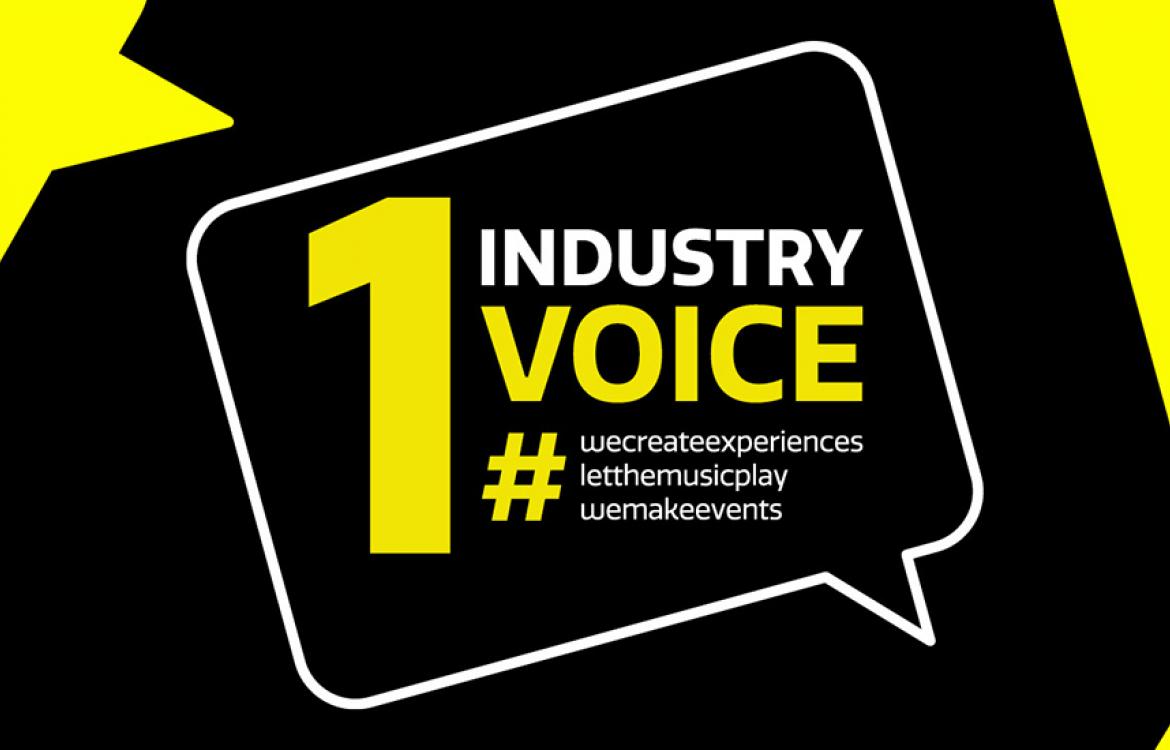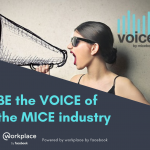Three more campaigns joined the One Industry One Voice events industry movement last week as new social media channels and branding for the #WeCreateExperiences national and regional media campaign were unveiled.
We caught up with Simon Hughes, chair of the British Visits and Events Partnership and co-founder of the #WeCreateExperiences campaign, to get the latest….
Obviously we need to address the new lockdown announcement made at the weekend. What will this new lockdown mean for the UK events industry?
Whenever we hear a new announcement from the government around COVID restrictions, the immediate impact is the cancellation of business. That has happened every single time. It’s frequently because the communication is not supported by any detail, which results in confusion.
For example, the rule of six announcement resulted in cancellations in venues that right across the UK because clients had heard the number six and thought that meant they could no longer hold events for up to 30 in COVID-secure venues. I even heard examples of people who had events in March and April deciding to cancel because they understood it was a rule of six and that would remain in place for six months. The lack of supporting guidance or answers to questions has and continues to be really difficult for everyone in the events sector.
The great thing about our industry is we are really good at solving problems and we’re very creative. When there is a blanket announcement, we have people are getting right down into the detail and coming up with questions that nobody has really thought about. If for example somebody has organised to do a virtual event on Friday, or in two weeks’ time, which requires them to be in a studio setting, is that essential work? They can’t do it from home because they need all the professional kit. But is that allowed as essential work?
I think there is going to be lots of confusion for the next week or so as we push to find out exactly how we are able to operate throughout lockdown.
The real problem for us is that we haven’t been closed down. Although we have been restricted, and exhibition centres and conference halls have only just come back into play, technically we haven’t been told to shut, and that puts us in a really difficult position because we are in no mans’ land. Many people are unable to claim some of the financial support available, which would have made a massive difference.
Many governments across the world are actively engaging with and supporting their events industries and creating a roadmap the safe return of events. Why is that not the case here?
I think it’s because they aren’t in control of everything else – that’s my honest opinion. I think they have got so many problems on their plate they can’t even get their heads up to think about it.
With the One Industry One Voice movement, which is bringing all these different campaigns together, one of the things that is surfacing as we move that forward is we are identifying what they key challenges are that we face as an industry and uniting around that. That restart question is a massive question. If we come out of a national lockdown after four weeks and move back into a Tier system, it makes it difficult to plan and activate events. You might find that you have got a Tier 2 venue trying to run an event, but wanting to invite delegates who suddenly find themselves in a Tier 3 area, which isn’t allowed.
All the campaigns are looking at how we can develop a restart programme because nobody is going to do it for us, that’s quite clear. Harnessing the collective knowledge and the work that is being done across different campaigns is proving to be really useful.
Why is it so important for the industry to have one voice?
The diversity and the independent nature of our sector has been both our strength and our weakness. Lots of people operating in the events industry have run their businesses independently and very successfully and have never needed help. Some have a portfolio of international exhibitions, some of them have create world-class festivals, while people in the wedding sector also bring huge benefits to the economy that have never really been accounted for.
Bringing them together – the key thing was, rather than having lots of little small explosions taking place, we thought what we really need is to get the power of all these different event sectors together to make a big noise. To do that we need to be thinking about the cadence and the rhythm of the campaigns, so they are not bumping into each other. We need to give everyone a common set of data so that the messaging being heard, whether is through the press or to government officials or to the public, is consistent. When you pause and think about who we are and what we do, we make a massive impact on peoples’ lives and these are some numbers to support that. Over 1.56m people across the sector work in events, £84bn a year in terms of contribution to the UK economy, and £164bn in terms of trade.
All different types of events have a positive impact on the broader ecosystem of hospitality. So whether a conference, a congress, or wedding, hotel rooms will be booked somewhere in the UK, transportation will be required, people will be supplying AV and catering. It doesn’t matter what type of event it is. We are also using the same infrastructure.
An enormous amount of money is being spent on supporting hospitality, but we know that 54% of visitor economy is driven by business visits and events activity. So, no matter how much money you throw at hospitality, unless you get events back and going again, it is never going to be viable again in the long term. It’s just going to be sticking plaster after sticking plaster.
It’s also about finding the really common areas of interest like rapid testing, because all of us could make use of that. Unlike Austria and Germany, where they are piloting things like that, no-one in the government here is talking about how we deploy rapid testing, what are the protocols, how effective is it, and how to measure it. But we’re saying as an industry, we can organise that kind of thing. They are doing it in Leipzig, they are doing it in Vienna, why aren’t we doing that kind of thing here, because we should be doing it.
We are going to be living with this for some time, so we need to have regimes and protocols in place that enable us to have events even though it’s still around. We’re here to help and we are problem solvers so give us the chance to solve this problem.
Can you give us an update on where you are at with OIOV and #WeCreateExperiences?
One of the key things we have done is create a clear identity for One Industry One Voice and we’ve got six main campaigns now attached to that. One of the consequences of launching a distinctive brand and the social around that is that other campaigns have suddenly popped up. We were prepared for that and what we can now do is engage with them, find out what their mandate is and if its aligned with any of the other campaigns that are being run already, we can see if we can work together and avoid too much replication and duplication. That sounds easy but it’s not easy as some people are very committed and passionate about ideas they have had.
The #WeCreateExperiences campaign specifically is about trying to balance out the more immediate support and help required with looking forward to 2021 and beyond and focusing on what it is that events bring us in terms of our economy, wellbeing, communities and personal lives. That campaign is now going to pause until its appropriate to launch it – it won’t be appropriate to launch it in lockdown. We really do feel, and this has been agreed with all the business that are supporting us, no matter how difficult things are right now, we need to have the opportunity to inspire and educate people about how important events actually are in their lives in terms of creating experiences and memories. We can’t just all spend the rest of our lives in virtual meetings.
The campaign has raised over £50k which is great, particularly during a time when many businesses in the sector are struggling financially. Have you been surprised by the level of support?
It’s been really amazing. I wasn’t surprised by it, but it has been very humbling. It’s not just the big businesses and the big players that have offered their support. It’s the individuals as well literally who are putting a few quid in here and there – that is the most amazing thing because some of those guys are really struggling to make ends meet.
What’s your message to the industry? What more can event professionals be doing to support One Industry One Voice and #WeCreateExperiences?
The key thing is, if we are going to convince both members of the public and also corporate planners and buyers, then we going to have to make a noise. We do that by sharing and amplifying messages and making sure everyone in the industry is aware of the channels that we have up and running and use them actively. We want to try and galvanise the industry first and then take it out more broadly. So making sure people know where to go, how to get updates, what to look for and sharing that and using their own networks to amplify that will be really fantastic. That is what we are looking for. It’s not about the money. It’s more about the support than anything else.


 Join VOICE; our social community for agency leaders, influencers, planners and suppliers.
Join VOICE; our social community for agency leaders, influencers, planners and suppliers.